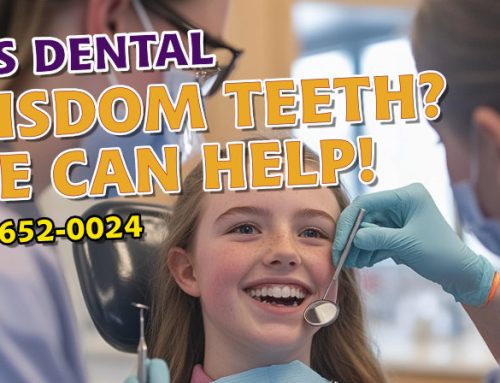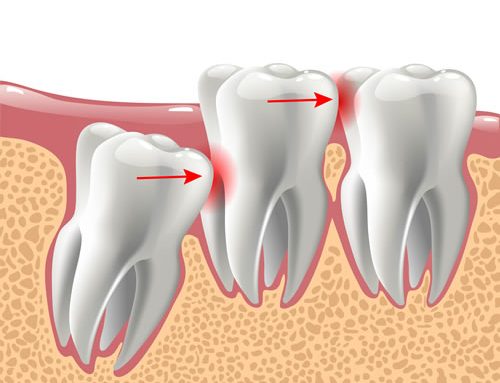 Wisdom teeth develop late. The mineralization process takes 13-14 years, and these teeth come anytime between age 18 and 25, which is when the human brain also becomes fully mature. The wisdom teeth have been called so since the eighteenth century and represent the eighth tooth from the central line of the human jaw. They can have several roots, and the number of roots varies from person to person. While wisdom teeth do not help with chewing and digestion, they play an important role in maintaining the structure of the face as well as the jaw bone.
Wisdom teeth develop late. The mineralization process takes 13-14 years, and these teeth come anytime between age 18 and 25, which is when the human brain also becomes fully mature. The wisdom teeth have been called so since the eighteenth century and represent the eighth tooth from the central line of the human jaw. They can have several roots, and the number of roots varies from person to person. While wisdom teeth do not help with chewing and digestion, they play an important role in maintaining the structure of the face as well as the jaw bone.
People often experience a very sharp pain in the ear during the germination of a wisdom tooth. It is also not uncommon for wisdom teeth to develop in the wrong way and create pressure on other teeth and their roots. When these things happen, it becomes necessary to get rid of the affected wisdom tooth.
When Does a Wisdom Tooth Have to Be Removed?
Impacted Wisdom Teeth Cause Severe Pain
An impacted or unexplained wisdom tooth is a term used to refer to half-erupted or fully-erupted but dislocated wisdom teeth. The problem with impacted wisdom tooth is that they cause severe pain. However, since they are invisible, most people are unable to figure out the cause of pain without consulting a dentist. While a dentist can try to correct the position of a wisdom tooth to stop the pain, in most cases this is a problem that can only be solved by removing the wisdom tooth.
Decaying Wisdom Teeth Must Be Removed to Protect Other Teeth
A decaying wisdom tooth has to be permanently removed since it can cause the infection to spread to the other teeth as well, which in turn, can lead to major oral issues that must be avoided at all costs.
When a Wisdom Tooth Begins to Resorb the Root of Another Tooth or Repress Other Teeth, Removing It Becomes Mandatory
When a wisdom tooth begins to resorb the root of another tooth and undermine its foundation, removing the wisdom tooth becomes necessary. Similarly, when a wisdom tooth begins to push against other teeth and undermine its foundations, dentists usually end up extracting the teeth.
Removal Is Also the Only Option in Case of Pericoronitis
Pericoronitis is an infection caused by the bacteria caused in the mouth by the food particles. The infection affects the sinuses and their surrounding glands and tissues. When pericoronitis affects wisdom teeth, dentists have no option but to remove them.
Lower Jaw Fracture
Lastly, sometimes, a lower jaw fracture or injury can also become a reason for a wisdom tooth removal.
What to Expect After Wisdom Tooth Removal?
Wisdom tooth removal is a quick process that takes only a few minutes. If you are going for wisdom tooth removal, you will be given anesthesia, which stays active for about two hours. After the anesthesia has faded off, you may feel a bit of discomfort or pain around the affected area. Dentists usually prescribe a pain killer to help patients deal with the pain.
That apart, you may also experience a bit of swelling. Cold compresses help relieve the swelling — use them for at least two days after wisdom tooth removal. You may also see some blood in your saliva — do not worry, this is common and will stop in a few days.
After wisdom tooth extraction, you will be required to stay away from solids and warm fluids for 24 hours. After 24 hours, you can start with soft solids.
The pain associated with wisdom tooth removal usually goes away within 2-3 days. If you continue to feel pain after that, immediately contact your dentist.
If you are looking for a dentist, HPS Advanced Dental Care would love to see you. Dr. Heather is gladly accepting new patients.
We are located at 4741 24 Mile Rd. Shelby Township, MI 48316, and we can be reached at (248) 652-0024. We look forward to meeting you!



